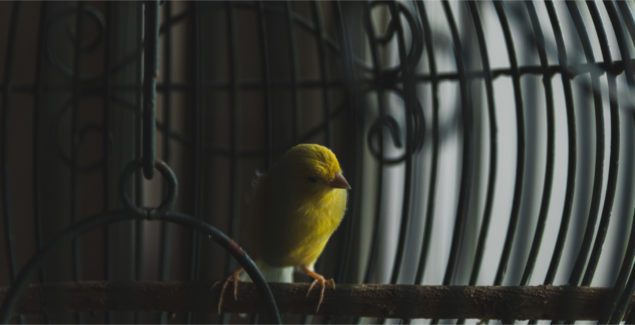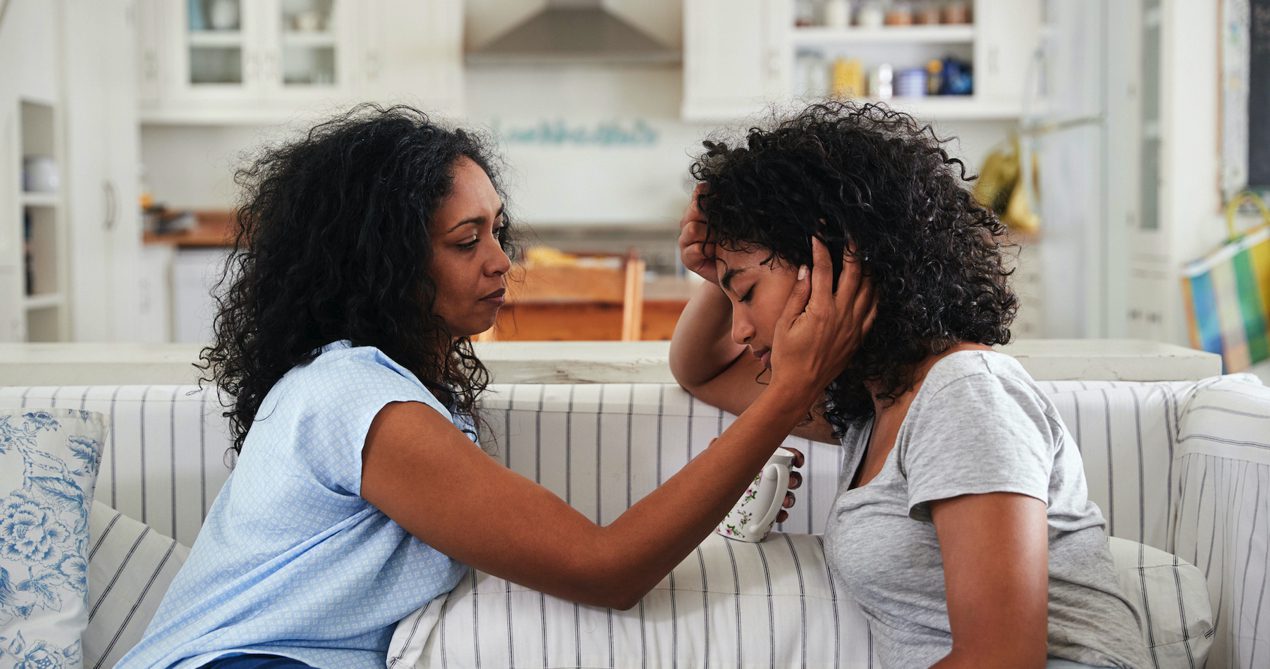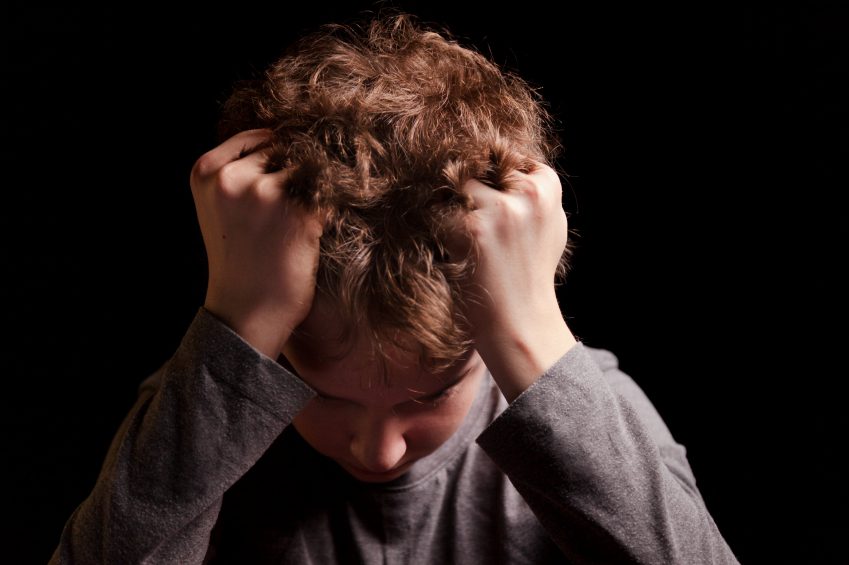Birdcage Memoirs: A Teen’s Reflections on Living Through the Pandemic

Posted in: Parenting Concerns, Teenagers
Topics: Real Lives Real Stories
This blog post is part of a series entitled Real Lives, Real Stories.
Note: The following person’s account of their personal experience has been published with their consent to support the mission of The Clay Center for Young Healthy Minds, and let others in similar situations not feel so alone.
Listen to Annabel talk about her experience on our podcast “Shrinking It Down.” Tune in above or wherever you stream.
Introduction from Annabel’s Father
For parents, teachers, and clinicians alike, the 18 months encompassing the heart of the pandemic felt like endless days of rotating screen faces, isolation, loneliness, and disconnection. During these months many entertained countless thoughts of longing for the “re-opening”. Now as that longing becomes reality with employees returning to the office, students to school and patrons to shops and restaurants, many of us have grown comfortable with being able to work in a quiet, empty home office conveniently close to family. For many the promise of a new reality is tempered by an anxiety, a part of us that is not too sure we are ready to go back to all that was “normal.” Although the adaptation and strenuous transition adults must face seems formidable, the impact of this pandemic storm on our youth has been felt far more deeply. As we move away from pandemic aberrancy, awareness and preparation is important. Trust in our anticipation is constantly threatened by the ever-changing news of viral variants and disparate regional vaccination rates. This essay offers an adolescent’s perspective in reflecting back and tenuously looking forward.
When my daughter approached me with her struggles from the past 18 months and anxious anticipation of the upcoming school year, I began to appreciate that we all need to hear the voices of our youth. How else can we know what they endured by the pandemic, and no matter what the uncertain future brings, we all will be able to help them with their challenges if we simply listen and validate their experience. The following is her voice.
Birdcage Memoirs
By Annabel Reddick, age 17
The importance of March 13th of the year 2020 will forever be ingrained in my mind, and it’s a moment in my short, 17-year history that has earned that right.
The school day began like any other: Waking up before the birds at 5:00 a.m and scarfing down a granola bar before being shuttled off to my high school where, in a groggy state, I tried to pay attention and take the required notes in each of my IB classes. You see, the thing that made that day unique were the whispers that could be heard in every classroom. The school board had a meeting scheduled for that evening to discuss the dangers of the Coronavirus and the precautions that should be taken to protect the student body. Throughout the day, it was as though every teacher had the “adult voice” from Charlie Brown, but instead of indistinguishable gibberish coming out of their mouths it was the phrase “school cancellations.”
That evening a group of my friends gathered in my backyard. It was a warm Friday night, one of the first of the season, and we had been anxiously waiting for a message from the school board for hours. Suddenly, one of my friends’ phones lit up with a notification. It was a screenshot of an email from the principal of our high school. He spoke loudly above the murmuring voices of the group and read the message: “I regret to inform you that in person classes will be cancelled until further notice.” The melodies of the song birds that had filled the air that evening suddenly drowned in an eruption of cheers. An unspoken conclusion was unanimously drawn: this would be the best time of our lives. Although my friends all lived within a mile of my house, that was the last time that I saw any of those people for months.
About a week later, social gatherings screeched to a halt. Within my community, panic spread. My family sheltered in place, enjoying the comforts of our cage. School resumed, though online, and I tried to adapt to the new life that I was living. At first I enjoyed the lull in activity in my everyday life – I woke up two hours later than before, wore pajamas to my classes, and was able to spend all of my time with my cat (and soulmate) Snickers – but it didn’t take long for discomfort to set in. The way that each day seemed to fade into the next began to take its toll on my mental well-being, and the novelty gave way to depression. Fortunately, a sizable fraction of that negative emotion was alleviated by my family. My 12-year-old sister and I were spending more time together than we had since she wore diapers, and I was thoroughly enjoying her company. However, even with my family around I felt a strong sense of isolation. It didn’t help that the past year had been my first year at a new school, and the friends that I had finally made that February were suddenly ripped from my grasp. I knew that it wasn’t just me feeling the loneliness – the whole world was experiencing the same emotions – but that didn’t stop any of us from hurting.
Virtual Junior year in the dining room brought its own challenges. When my eyes grew weary from blue light while I attended my zoom classes, I learned to rest them by watching the finches flitter beyond the dining room window. As a student that struggles with ADHD in an ordinary classroom setting, I found it almost impossible to pay attention during virtual lessons. Due to that combined with the sense of apathy that results from constantly staring at a computer screen, I wasn’t able to be the student that I once was. In this way, the temporary challenges brought on by the pandemic will have a permanent impact on my future.
I remember when I heard the door of the bird cage begin to creak open. My grandparents were among the first to be vaccinated against the Coronavirus, making it safe for my family to help them when they need it, and eventually move them into an assisted living facility. I started to spend my weekends with the friends that I thought I’d lost as the vaccines began to roll out.
Now I have the chance to return to in person learning in the fall, and the prospect of that is both exciting and terrifying. Somehow over quarantine, in a sudden twist of plot, I’ve begun to miss being at school. Small aspects of my high school that I never seemed to notice have begun to push themselves to the forefront of my thoughts, coated in wishful bliss. I feel a sense of longing for the way that the stall doors in the bathroom won’t close unless you slam your body against them, and I’ve found myself missing the hour-long bus rides home, feeling a sense of accomplishment and trying to assuage the back pains that my heavy book bag would cause. However, the daunting aspects of returning to school are a fierce competitor for the things that I enjoy about in-person learning. I often find myself worrying if I even remember how to be out in the world, like a bird finally released from her cage. I worry if I’ll be able to reform the close connections that I had with my classmates and if I’ll ever go back to being the student that I was after so much time spent learning online. No matter how hard it might be for me, I know that a lot of people have struggled much more than I have during the pandemic, some losing their jobs and/or homes, while others lost friends, family members, or even their own lives. History teaches us that humanity has recovered many times from tragedies and gives us hope that we will recover as well.
The alarm quiets and the sparrow calls to its companions in the trees. Together, they raise their wings once more, and soar out of sight.

 Share
Share Tweet
Tweet





